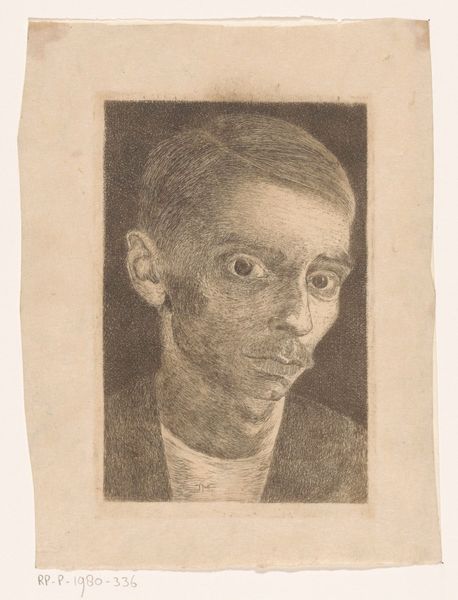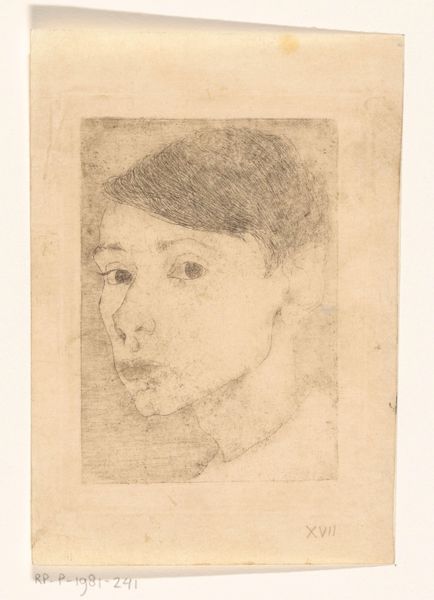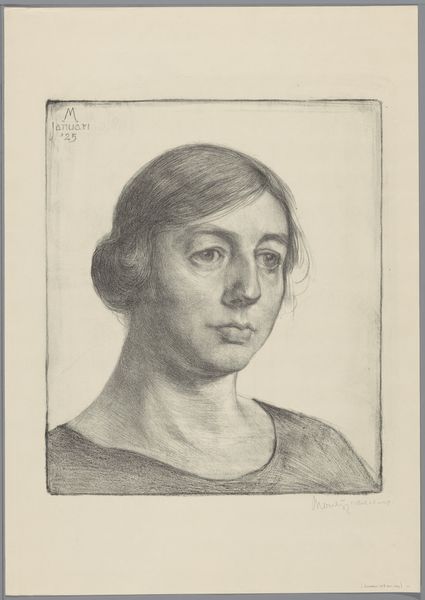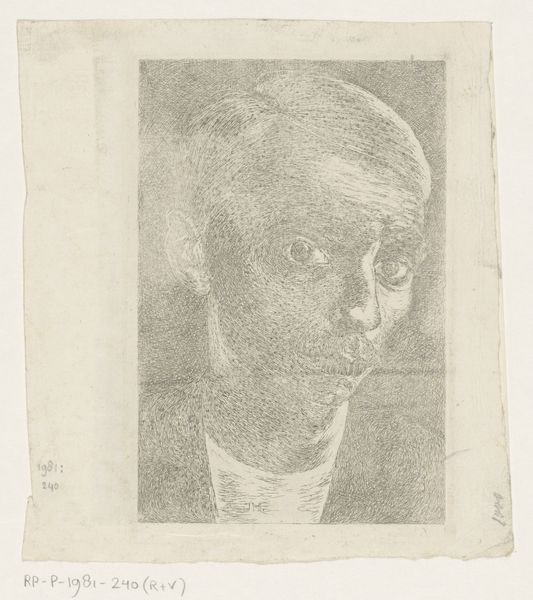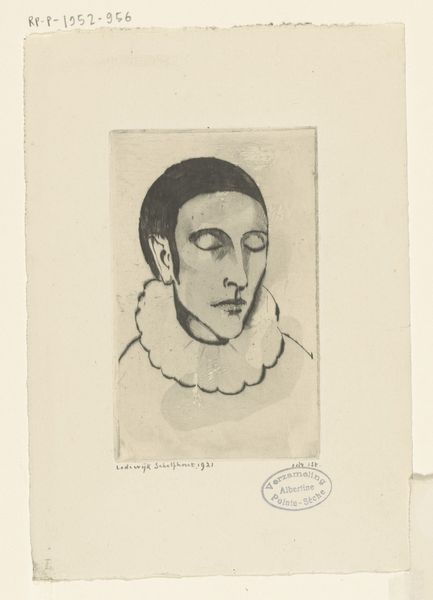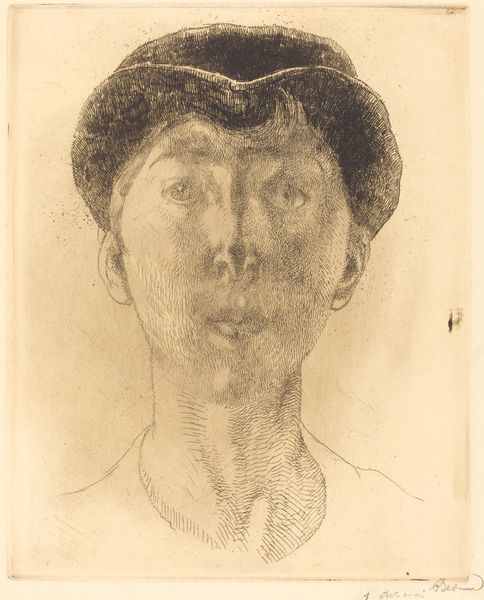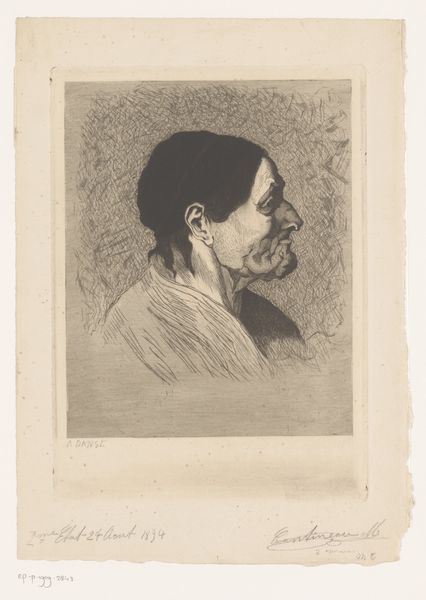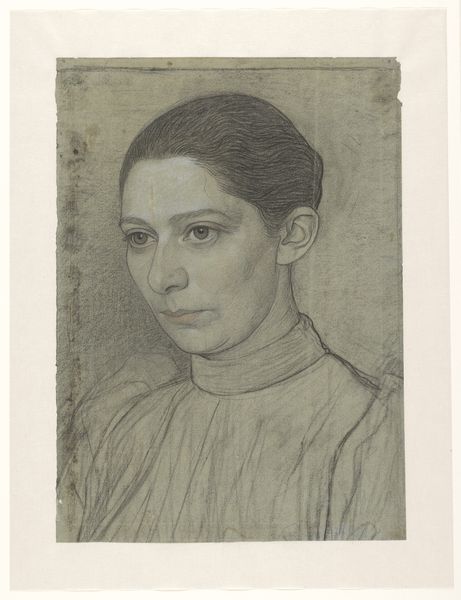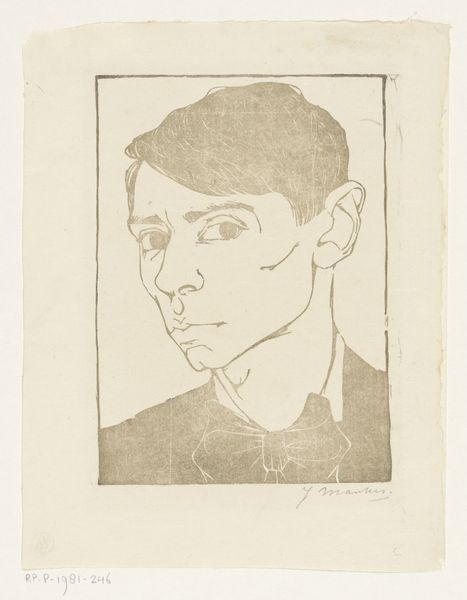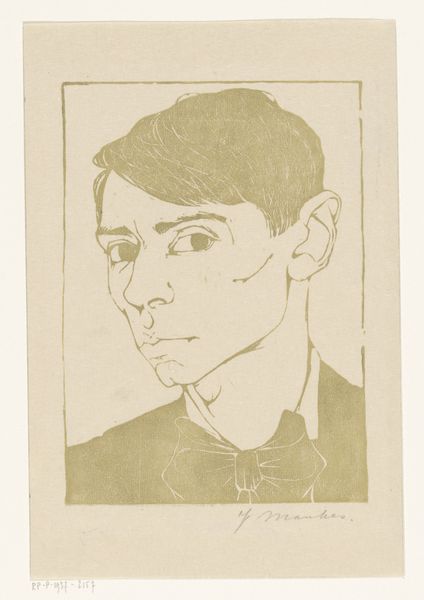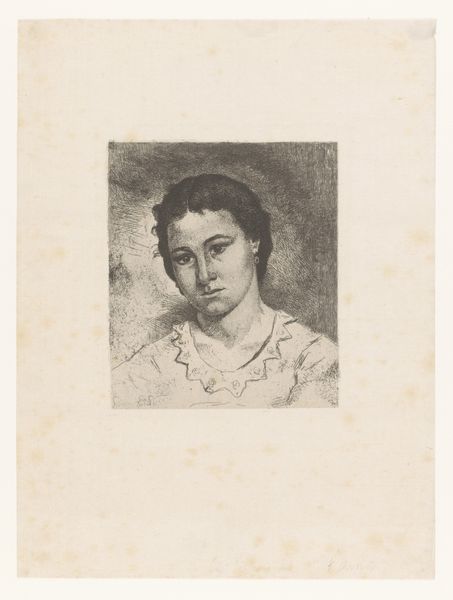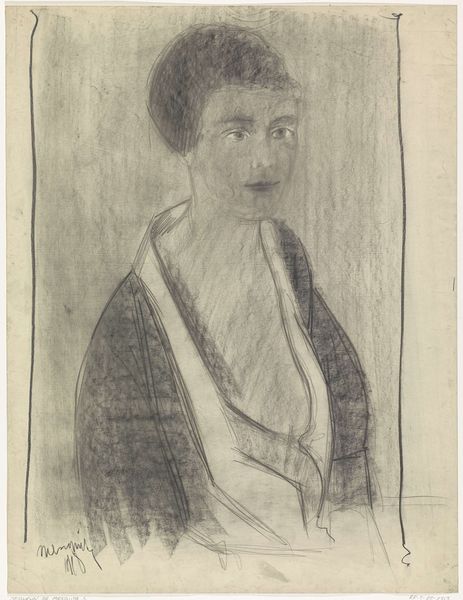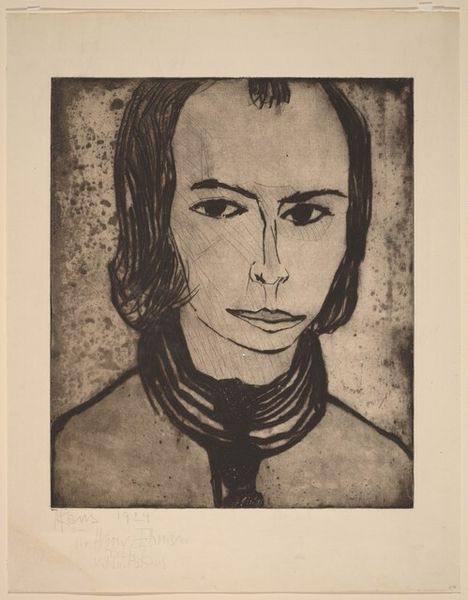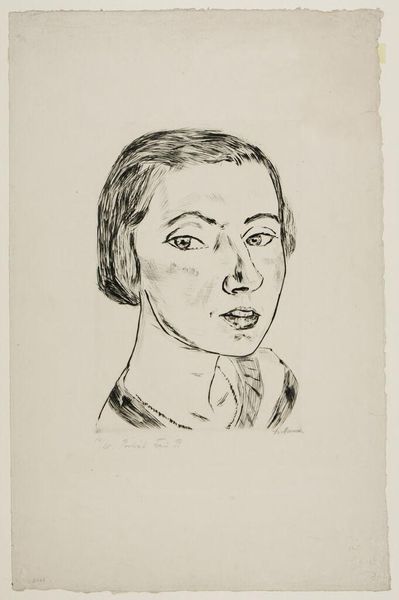
drawing, pencil
#
portrait
#
drawing
#
self-portrait
#
pencil drawing
#
intimism
#
pencil
#
realism
Copyright: Public domain
Editor: This is Jan Mankes' "Self-Portrait," created in 1915 using pencil. The expression in his eyes is intense, almost piercing. I'm curious, what kind of story do you think this portrait tells? Curator: Well, considering Mankes' artistic context, it's worth thinking about how his work fits into the broader societal shifts happening at that time. Early 20th century portraiture was really beginning to challenge traditional representations of self. You have the rise of psychology and a deeper exploration of inner life. Do you see elements of that reflected in the portrait’s direct gaze and stark composition? Editor: I see what you mean, it's more than just a likeness, there is definitely a psychological weight to it. It seems like he is inviting the viewer to connect. How would his contemporary audience receive his invitation? Curator: That's interesting! How it would be received really depends. At the time, realism was gaining popularity but wasn’t entirely devoid of academic expectations. There's an undeniable intimacy here, an unvarnished quality that might resonate with some while perhaps seeming unsettling to others accustomed to more idealized portrayals. This piece seems to democratize self portraiture, by allowing the every-man a chance at contemplation. Editor: So, its power really lies in the social context of the time, where the established way of thinking of portraits was challenged by this approach that favors psychological reading. Curator: Precisely! It serves as a time capsule of evolving perceptions of self and societal introspection. It invites us to consider how we project ourselves. Editor: I never thought about it that way. Thanks for contextualizing Mankes' self-portrait within those socio-cultural dialogues. Curator: My pleasure. Artworks really come alive when we see them within their time.
Comments
No comments
Be the first to comment and join the conversation on the ultimate creative platform.
